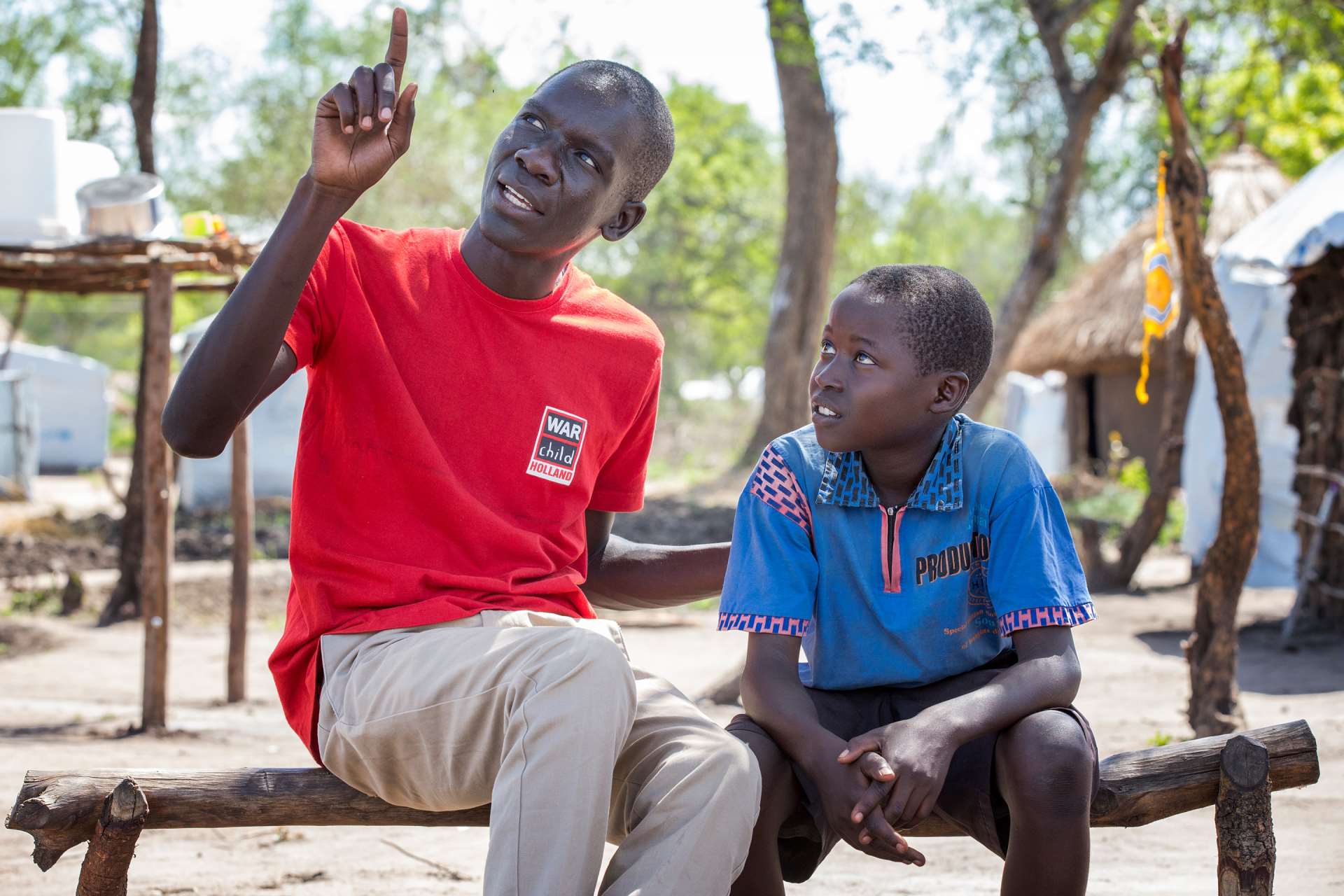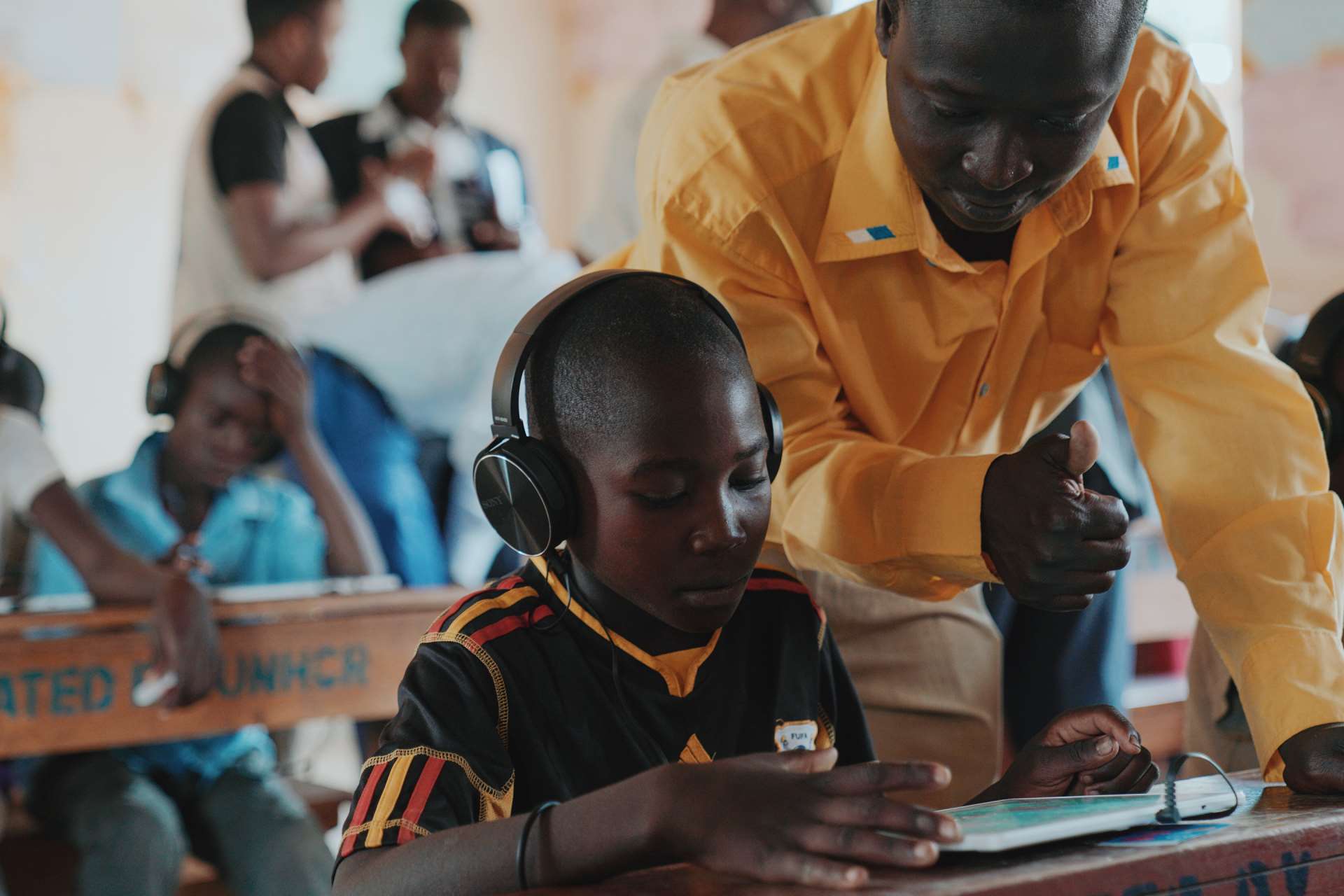What We Do for Children
War Child works exclusively to improve the psychosocial wellbeing of children affected by conflict. Our integrated programmes combine psychosocial support, education and child protection for maximum impact. This approach ensures our efforts are both relevant and effective.
Psychosocial Support
Our psychosocial support interventions are designed to support conflict-affected children to cope with the adversities they experience. These adversities take many forms - including feelings of fear, anxiety, and depression, as well as exposure to physical and sexual exploitation.
We work to enable children and young people to build their inner strength and resilience to cope with these adversities. With our life skills interventions and structured recreational activities, we aim to develop increased self-confidence and trust in others - and a hope of a better future.

Education
The Sustainable Development Goals (SDGs) state that widening access to education isn’t enough - children must have the opportunity to complete learning paths of the highest quality. This mandate shapes War Child’s work to provide education to thousands of children around the world.
Our education programmes support children to develop the knowledge and skills they need to shape their own future. All of our efforts empower them to participate in their societies and fulfil their potential.
We provide catch-up education, basic numeracy and literacy and e-learning initiatives for children denied their right to learn. We also support teachers and other education professionals to help create safe and enabling learning environments.
Can’t Wait to Learn is our flagship education programme. This global initiative provides conflict-affected children with quality education - no matter where they live. The programme offers children the opportunity to (continue to) learn to read, write and count through playing educational games on tablet devices.

Child Protection
A record 420 million children live in countries affected by armed conflict and humanitarian instability - that figures equates to almost one in five children worldwide. The structures necessary to maintain the safety of children often break down in times of armed conflict - leaving children exposed to risks including violence, abuse and sexual exploitation.
We partner with communities and local authorities to safeguard the fundamental rights of children and strengthen child protection systems.
Children are also closely involved in our protection activities - we support them to identify and analyse risks to their safety. We then work together with both children and their communities to reduce those risks.